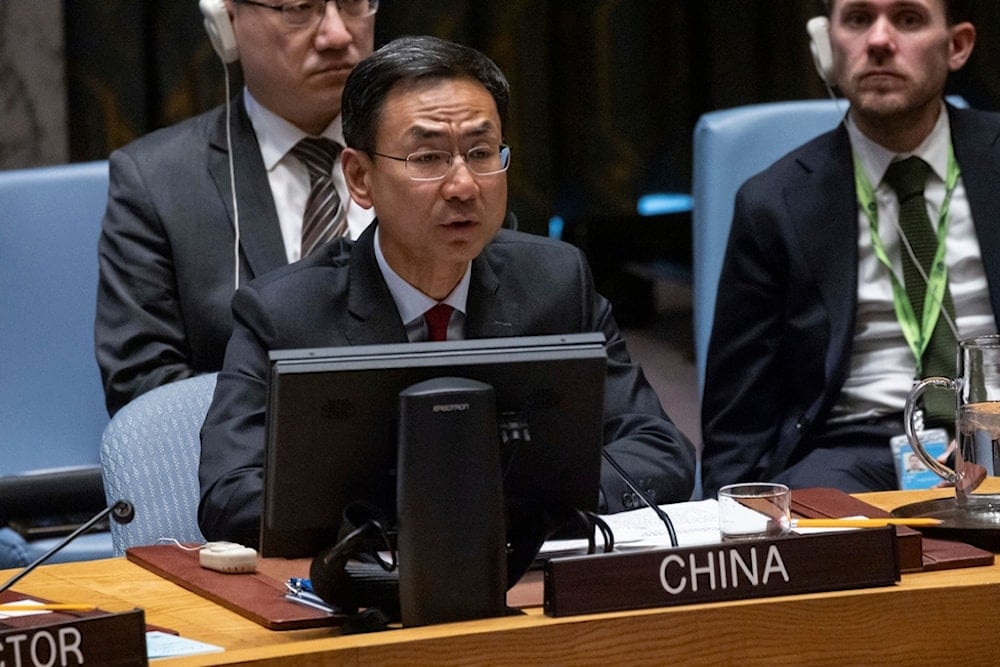'Israel's' Gaza plan to cause bloodshed, displacement: China UN envoy
China warned at the UN that the Israeli regime's plan to seize control of Gaza would cause more bloodshed and displacement, urging an immediate halt to military operations.
-

China's Deputy Permanent Representative to the United Nations Geng Shuang speaks during a Security Council meeting at the United Nations headquarters, Friday, January 17, 2025. (AP)
China has cautioned that "Israel’s" stated objective to assume control of the Gaza Strip would trigger further humanitarian catastrophe, with its envoy to the United Nations warning of heightened violence and displacement.
Speaking at a UN Security Council debate on the Middle East on Wednesday, Deputy Permanent Representative Geng Shuang said: "Israel is still moving forward with its military plan to take over Gaza. The plan, once implemented, will inevitably lead to more bloodshed and displacement, adding to the danger and insecurity both of Gazans and detained hostages are facing."
He added that Beijing "totally opposes and condemns any actions that could harm civilians, destroy infrastructure, and violate international law," urging Tel Aviv to heed international calls to stop its offensive. "We urge Israel to heed the strong calls from the international community, immediately cease its military operations in Gaza, and immediately halt any dangerous moves that escalate tensions," Geng continued.
The Chinese envoy also affirmed that his country rejects violations of humanitarian law and the manipulation of aid. He pressed the Israeli occupation to meet its responsibilities as an occupying power by reopening border crossings and allowing full humanitarian access to the enclave.
The remarks follow Israeli Prime Minister Benjamin Netanyahu’s early August declaration that "Israel" plans to establish full control over Gaza to secure a perimeter. Netanyahu said authority would later be handed to a new "civilian administration," while maintaining that "Israel" does not intend to keep permanent control of the territory.
However, critics argue that such a plan effectively amounts to prolonged occupation, raising fears of renewed displacement, expanded instability, and violations of international law.
Read more: China renews push for Palestinian unity with new Beijing talks
Ceasefire obstructed
At the same time, ceasefire diplomacy remains highly contested. Hamas recently announced it had accepted a partial truce proposal mediated by Egypt and Qatar, with readiness for a broader deal, but accused Netanyahu of blocking progress.
In a statement on Sunday, the movement said Netanyahu’s approval of a Gaza occupation plan “confirms his insistence on obstructing an agreement,” pointing out that both Israeli and American admissions prove he is the main obstacle to prisoner exchange and ceasefire arrangements.
Hamas emphasized that only a ceasefire agreement can secure the release of captives, holding Netanyahu fully responsible for their fate, and urged international pressure to end “genocide and the use of starvation against the Palestinian people.”
Despite the acceptance of mediation frameworks, Netanyahu has insisted the Israeli occupation will continue its offensive while conditioning negotiations on terms favorable to his government, raising doubts about whether diplomacy can move forward without a fundamental shift in Tel Aviv’s position.

 3 Min Read
3 Min Read










